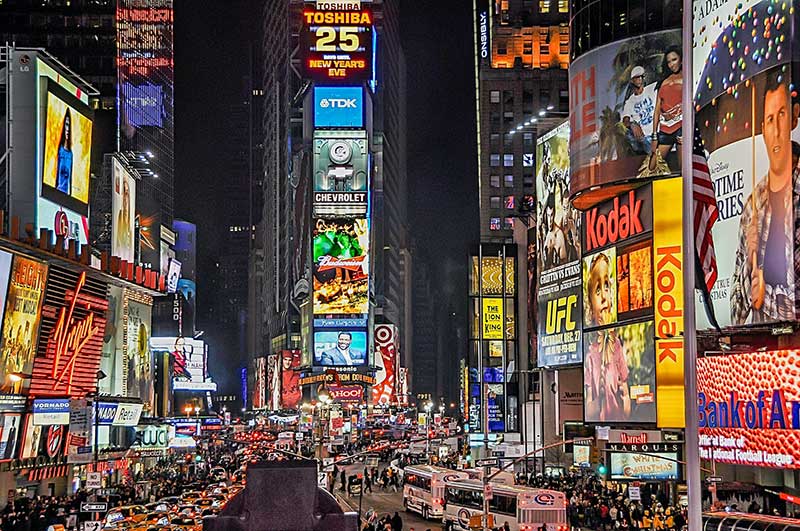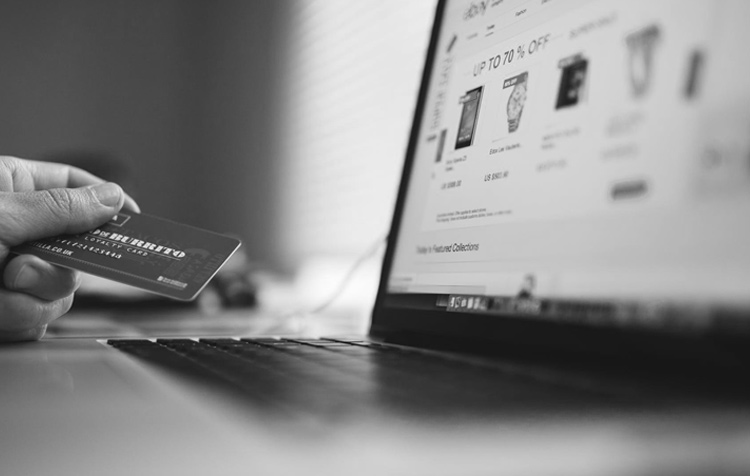Want to know why consumption makes you unhappy? Then you've come to the right place! Minimalism? Just a few years ago, this would never have been a concept to me, nor would I have ever believed that I could live a minimalist life. Since my childhood, I have always kept everything. I wanted to have everything that might have been useful at some point. Even in my youth, I thought it was absolutely necessary to always be "perfectly" equipped.
Does this sound familiar? And are you also thinking about making a radical change? In this article, you'll learn why I believe that consumption doesn't make you happy. And why I have decided to invest in a start minimalist life.
4 arguments why consumption does not make you happy
To this day, I have no regrets about consciously choosing a minimalist lifestyle. The following four reasons have finally convinced me. And I hope that they will also give you some important food for thought for a more conscious consumer behavior.
1. advertising influences our consumer behavior

Surely you are convinced that you can make your own decisions and know what makes you happy. But is that really the case, or does our subconscious mind throw a spanner in the works of our freedom of choice? We often don't realize how we are influenced by print, online and television media. Surely you too have caught yourself at some point automatically orienting yourself to an advertisement: When we see ads for a certain product over and over again, at some point it seems natural to own it or want it. Persistent advertising makes a product seem more and more important, useful, or desirable over time.
But advertising also manipulates us on an emotional level. You've probably experienced this too: You see a product and immediately have the current commercial in your head. If the ad is not your cup of tea, you probably immediately lose the desire to buy the product. If, on the other hand, it fascinates you, makes you laugh, or you identify with it, the product automatically looks more attractive to you and you tend to buy it.
Tip: If you want to know more about the Psychology of minimalism then take a look at the linked article!
2. media influence our buying behavior
In this day and age, we are inundated by visual and acoustic impressions through various media: Television and the Internet in particular are always and everywhere available. Via social networks, we participate in the lives of countless people, most of whom we know only distantly or not at all. We are confronted with an abundance of lifestyles, products and leisure activities. This oversupply alone makes us unhappy because it stresses us out.
When we like a person's style of dress, lifestyle, or diet, we tend to gravitate in that direction as well. Suddenly, we desire products that we hadn't given a thought to before. Also, if we like a person, we tend to orient ourselves toward him or her; especially if it's someone prominent.
So the media have an impact on our consumer behavior not only in the form of (obvious) advertising; but through all the images they show us. A product that is currently in fashion or is the subject of particularly frequent discussion for other reasons quickly appears attractive to us: By constantly seeing it and getting used to the sight of it, we gain the impression that we are still missing it. The effect is the same as with targeted advertising; only that we are even less aware of it. We then tend to consume - but it doesn't make us happy, because we weren't actually missing anything.
By not having the seller present the product to us, but by observing its use by satisfied buyers, we are especially quick to trust that a purchase would be worthwhile.
Notice: Especially the Fast Fashion Industry lives from our consumer mania. New trends are issued every week to get us to go shopping. The environment and society fall by the wayside. In the article about the Slow Fashion Movement find out what you can do about it!
3. our consumer behavior influences the environment

It has long been known that climate change threatens the future of us all. But it's not just our eating, heating and travel behavior that affects our carbon footprint: Our buying behavior does too. Through sustainable consumer behavior, you can already do a lot for the environment and make yourself happier.
Tip: In the separate article you will learn exactly, why environmental protection is so important!
The first thing to do is to choose quality over quantity. The indiscriminate or spontaneous purchase of products that you like at that moment ultimately leads to a lot of things sitting unused in the corner or ending up in the trash. This wastes raw materials and creates large amounts of waste. Try to learn a conscious and thoughtful approach to your own consumer behavior. Treat yourself to only those products that are really worth the money; that you need, that really help you or that you really enjoy after buying them. Rather spend a little more money on something that is actually worth it. And not for as many unnecessary little things as possible. In the end you save money through sustainability.
In terms of sustainability, of course, many other criteria play a role: Are the product and its packaging biodegradable? How environmentally friendly are the ingredients? Has the product been transported a long way or was it manufactured nearby?
But more: The demand determines the supply! Conscious consumer behavior can make a decisive contribution to manufacturers and sellers taking on more ecological responsibility. In addition, you can be a role model for family, friends and colleagues. By consuming consciously, you inspire the people around you to also pay more attention to conscious consumption. Classic domino effect.
Tip: Need some more inspiration to force your luck? Then feel free to take a look at the Minimalism Quotes Collection.
4. more consumption does not mean more happiness

By buying something, we reward ourselves: we do something according to our wishes and needs; we spend our well-earned money on doing something good for ourselves. A new product gives us a feeling of happiness.
The catch: This satisfaction usually does not last long. This is especially the case when we have bought a product that we don't actually need, that we only pay attention to for a short time, or that doesn't meet our expectations. But we also get used to things that were well worth the money relatively quickly. We may like them in the longer term, but the satisfaction we felt at the moment of purchase is no longer present in this form.
In both cases, our brain's solution is to buy something new for the next dopamine rush. This behavior neither makes us happy nor free. Rather, it constricts us.
Excessive consumption does not make us happy and satisfied in the long term. It has the opposite effect. So if you feel the need to buy something just to buy something, you'd better do some soul-searching and think of an alternative that will make you happy. Stable relationships, self-determination, freedom and responsible actions make you happy.
Tip: Take a look at the post about Good deeds in everyday life - these are things that will make you happy from the bottom of your heart.
When consumption makes you unhappy - live happier with minimalism!
When I first got into minimalism a few years ago, I was amazed at what was in my closets. Many things I had long forgotten about. Looking in the basement, I realized that some things I didn't even know I had. Countless things I had neither used nor missed for years. Some already dragged from move to move.
In the long run, intensive consumerism is not only expensive, but also exhausting. At first glance, a lot of possessions may seem like prosperity, but they also quickly overwhelm us. Masses of books, clothes, shoes and decorative objects take up space and make us feel like we're losing track of everything. A crowded room quickly floods us with stimuli without us realizing it. This can subconsciously cause us massive stress, impair our ability to concentrate and ultimately make us unhappy.
By changing the way we deal with our own consumer behavior, we live more sustainablymore stress-free and more satisfied. The road can be difficult, but it's worth it: you'll feel incredibly liberated and enjoy having regained control. It was like that for me. And even though I don't own much anymore, it still feels good to get rid of things.
In addition to a permanently conscious, targeted shopping behavior, a consistent cleaning out of the apartment is essential. Limit yourself to the things that you really need, use regularly or that evoke positive emotions in you. Everything else you should not dispose of, but sell, give away or donate. This not only makes it easier for you to "say goodbye", but also benefits your fellow human beings and the environment.
Do you have questions or your own experiences with your consumer behavior and happiness? Then feel free to write me a comment!
Keep it minimalist,

PS: We have also provided you with an article with practical Minimalism apps compiled. Look gladly times purely!






Thank you very much for your ideas. We could find some interesting thoughts for ourselves in it. Even if life is good to us, our environment and ourselves are doing well, we are always happy about an extra pinch of happiness in life. "Vivre la vie" is a maxim of life in France, but for us Germans it is a dry "live your life". The triumphant quality of the language is missing, the outcry of life, of happiness for as long as possible. In our mind's eye, we often associate it with how youth approaches things in its lightheartedness, completely unconcerned in an awareness that life can only mean well with you. It is not difficult to find things that make you happy. The warm spring wind, the breeze by the sea, the cheerful evening get-together. It depends on the inner attitude and in the French Vivre la vie resonates something like "embrace life", hold it tight, with all your senses, live happily. As we age, it remains the art of life to hold on to those things that make us happy. To keep a good portion of lightheartedness and youth, even when the first little wrinkles dig into our faces. Laughter lines do not make us old, they keep us young.life remains for us as a chance and a challenge in search of things that make us happy, put us in a positive mood. Let's not be too hard on ourselves. Let us hold on to happiness when it has found us and learn from it for our lives. Happiness gives us zest for life and courage to face life, lets us survive even some difficult situations. With optimism and new strength we are able to grasp life and move things towards the positive. On the way there we have to take care of the big and small moments of happiness like a tender plant in the garden. Prepare the soil, give it the nutrients and occasional watering, especially when in the heat of everyday life we temporarily forget to think of ourselves, of our own personal happiness.
Comments are closed.